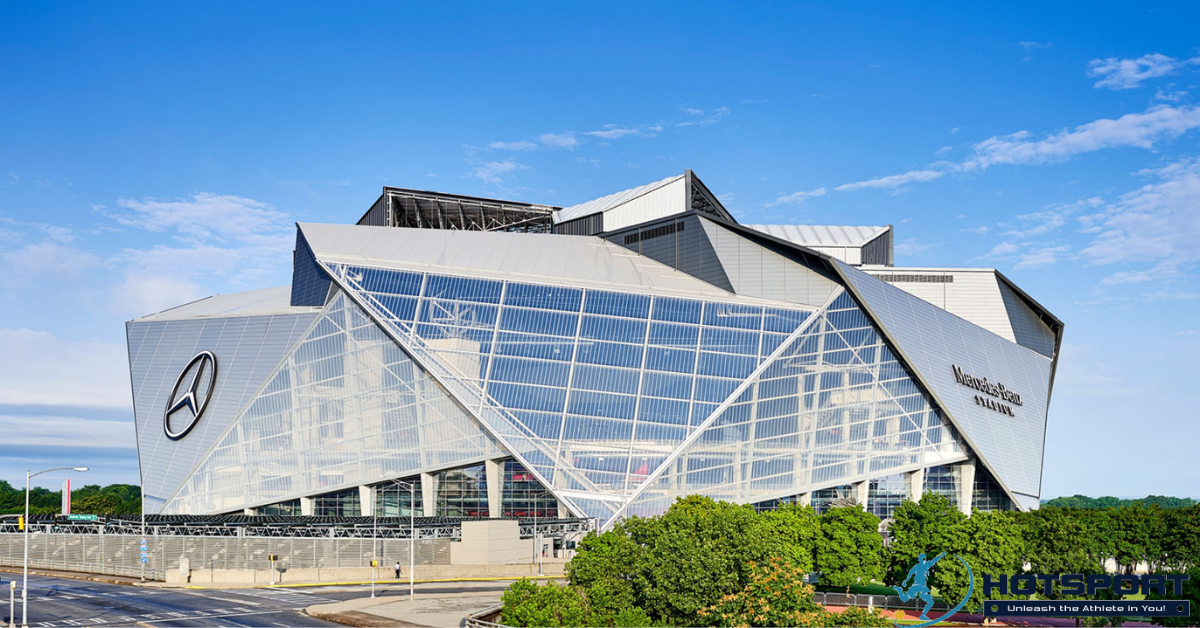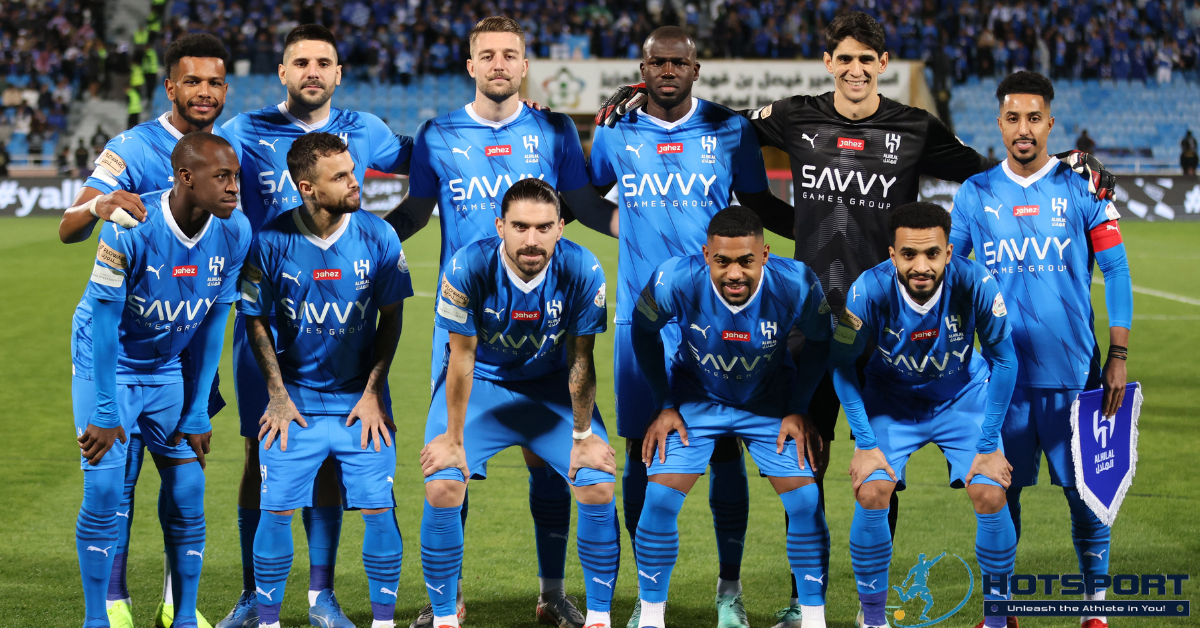Mercedes-Benz Stadium: An Icon of Atlanta
Located in Atlanta, Georgia, the Mercedes-Benz Stadium is an architectural masterpiece and a cultural landmark of the city. Opened in 2017, it replaced the Georgia Dome and became the home of the Atlanta Falcons of the National Football League (NFL), as well as a venue for sporting events, concerts, and community activities. With its innovative retractable roof and futuristic design, the stadium is more than a sports facility—it is a symbol of innovation and pride for Atlanta. This article explores the history, architecture, events, and impact of the Mercedes-Benz Stadium.
History and Context
Replacing the Georgia Dome
The Georgia Dome, built in 1992, served as the home of the Atlanta Falcons for 25 years and hosted memorable events like the Super Bowl and Olympic Games. However, as time passed, its facilities became outdated, necessitating a new stadium to meet modern demands. In 2010, plans were announced for the construction of the Mercedes-Benz Stadium, an ambitious project aimed at revolutionizing the fan experience.
Construction began in 2014 with an investment of approximately $1.6 billion, funded by a combination of public and private resources, including a naming rights partnership with Mercedes-Benz. The stadium was inaugurated on August 26, 2017, with a preseason game featuring the Atlanta Falcons, marking a new era for sports and entertainment in Atlanta.
Purpose and Vision
The Mercedes-Benz Stadium was designed to be more than a sports venue. Its creators, led by the Arthur M. Blank Family Foundation (owners of the Atlanta Falcons), envisioned a space that would unite the community, promote sustainability, and offer a unique experience for visitors. The stadium reflects these values through cutting-edge technology, accessibility, and eco-friendly initiatives.
Architecture and Design
Innovative Retractable Roof
One of the most striking features of the Mercedes-Benz Stadium is its retractable roof, inspired by the Pantheon in Rome. Composed of eight triangular panels that move in sync, the roof can open or close in about eight minutes, allowing events to take place in any weather condition. This design, known as the “oculus,” creates a circular opening that offers stunning views of the sky, connecting the stadium’s interior with the outside environment.
The architectural project, led by the firm HOK, blends functionality and aesthetics. The roof not only adds versatility but also reduces operational costs, as open-air events require less energy for lighting and climate control.
The Facade and Halo Board
The stadium’s facade features glass and metal panels that reflect Atlanta’s modernity. Its shape, resembling the wings of a falcon, pays homage to the Atlanta Falcons. Inside, the “Halo Board,” a 360-degree video screen measuring 1,075 feet in length, is one of the largest in the world. This screen ensures that all spectators, regardless of their seat location, have a clear view of the action, whether during football games, concerts, or other events.
Sustainability and Technology
The Mercedes-Benz Stadium is one of the most sustainable venues in the world, earning LEED Platinum certification, the highest rating for eco-friendly buildings. It features solar panels, rainwater collection systems, and energy-efficient technologies. Additionally, the stadium offers high-speed Wi-Fi, allowing fans to share moments in real time, and a mobile app that facilitates food orders, seat location, and access to replays.
Events and Versatility
Home of the Atlanta Falcons
Since its opening, the Mercedes-Benz Stadium has been the home of the Atlanta Falcons, drawing thousands of fans each season. The vibrant atmosphere, with chants and traditions like “Rise Up,” creates an unforgettable experience for supporters. The stadium also hosts Atlanta United FC, a Major League Soccer (MLS) team that has captured the hearts of Atlanta residents with its success and passionate fanbase.
Major Sporting Events
Beyond regular games, the stadium has hosted major sporting events, such as Super Bowl LIII in 2019, which drew global attention. The Peach Bowl, one of the premier college football bowl games, is held annually at the stadium, attracting fans from across the country. In 2026, the Mercedes-Benz Stadium will be one of the venues for the FIFA World Cup, cementing its relevance on the international sports stage.
Concerts and Entertainment
The stadium’s versatile design makes it ideal for concerts by major artists. Stars like Beyoncé, Taylor Swift, and Ed Sheeran have performed there, taking advantage of its high-quality acoustics and capacity for up to 71,000 people (expandable to 80,000 for special events). The retractable roof and Halo Board create an immersive experience, turning concerts into visual and auditory spectacles.
Community and Corporate Events
The Mercedes-Benz Stadium also serves as a hub for community events, such as career fairs, cultural festivals, and charitable initiatives. Its facilities include spaces for conferences and corporate events, with equipped meeting rooms and panoramic views of Atlanta. These activities reinforce the stadium’s role as a community gathering place.
Community Impact
Economic Development
The construction of the Mercedes-Benz Stadium revitalized Atlanta’s Vine City neighborhood, bringing jobs and business opportunities. Over 5,000 workers were employed during construction, and the stadium continues to generate jobs in areas like security, hospitality, and maintenance. Nearby shops and restaurants also benefit from the influx of visitors.
Social Initiatives
The Arthur M. Blank Family Foundation uses the stadium to promote social programs, such as donations to local schools and inclusion initiatives. The stadium also hosts fundraising events for causes like hunger relief and mental health support, underscoring its commitment to the community.
Culture and Atlanta’s Identity
The Mercedes-Benz Stadium has become a symbol of Atlanta, a city known for its diversity and innovation. It reflects the city’s vibrant energy and passion for sports, music, and culture. For residents, the stadium is a source of pride, representing Atlanta’s ability to reinvent itself and shine on the global stage.
Visitor Experience
Local Cuisine
The Mercedes-Benz Stadium is renowned for its culinary offerings, blending Atlanta’s flavors with affordable prices. Unlike other stadiums with high food costs, it offers budget-friendly options like $2 hot dogs and family combos. Menus highlight Southern U.S. cuisine, featuring dishes like barbecue, fried chicken, and Georgia peaches.
Accessibility and Comfort
The stadium was designed with accessibility in mind. Elevators, ramps, and adapted seating ensure a comfortable experience for all visitors, including those with disabilities. Additionally, its integrated transportation system, with access to Atlanta’s MARTA metro, facilitates arrival and departure for events.
Technology for Fans
Fans enjoy an enhanced experience through technology. The stadium’s mobile app allows ticket purchases, food orders without leaving seats, and access to real-time statistics. Interactive screens and replays on the Halo Board keep fans engaged during events.
Challenges and Criticisms
Construction Costs
Despite its success, the construction of the Mercedes-Benz Stadium faced criticism due to its high cost and use of public funds. Some residents questioned whether the investment would yield proportional benefits for the community. However, studies show the stadium has had a positive economic impact, boosting tourism and local revenue.
Traffic and Logistics
On major event days, traffic around the stadium can be challenging. To address this, Atlanta authorities have implemented transportation plans, including special buses and incentives for public transit use. Still, visitors are encouraged to plan their arrival in advance.
The Future of Mercedes-Benz Stadium
As Atlanta continues to grow, the Mercedes-Benz Stadium is poised to play a central role in the city’s future. With the 2026 FIFA World Cup on the horizon, the stadium is undergoing upgrades to meet FIFA standards, including improvements to infrastructure and security. Additionally, new cultural and sporting events are planned, ensuring the stadium remains relevant for decades.
Lasting Legacy
The Mercedes-Benz Stadium is not just a venue for sports and entertainment but a lasting legacy for Atlanta. It represents the vision of a city that values innovation, community, and excellence. Whether watching an Atlanta Falcons game, dancing at an international artist’s concert, or attending a community event, visitors experience the best of Atlanta.
Conclusion
The Mercedes-Benz Stadium is more than a stadium—it is a landmark that encapsulates Atlanta’s spirit. With its innovative design, retractable roof, and commitment to sustainability, it redefines what a multipurpose venue can be. As the home of the Atlanta Falcons, a stage for global events, or a community hub, the stadium continues to inspire and unite people. For those visiting Atlanta, a stop at the Mercedes-Benz Stadium is an opportunity to experience the energy and passion of one of the United States’ most vibrant cities.























